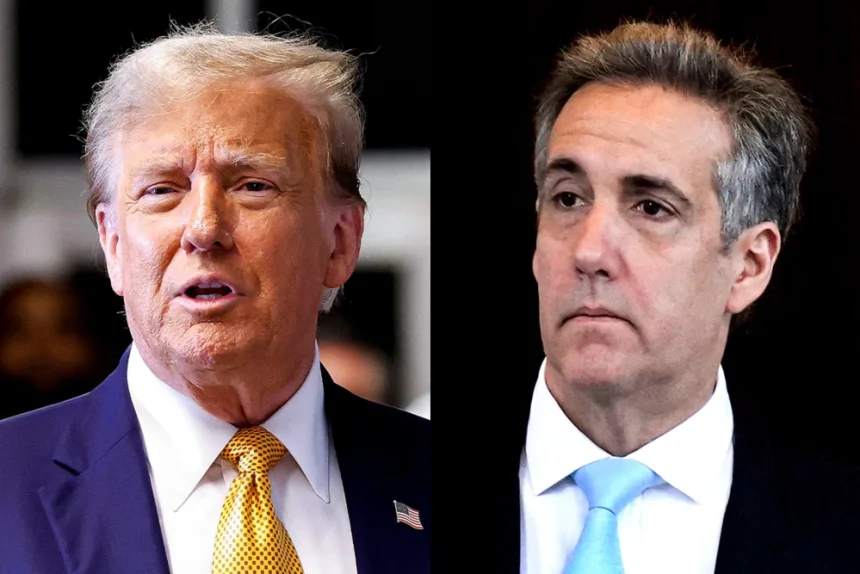On Monday, the Supreme Court its ruling rejected the disbarred lawyer Michael Cohen’s last-ditch effort to revive a civil rights claim against his former boss, Donald Trump, who is currently standing to be elected as president in the US.
The decision by the judge set aside the ruling of the lower court, which stated that Cohen could not pursue his allegation, which stated that then-President Trump and other officials violated his rights by putting him in solitary confinement for writing a tell-all book.
It was learnt that as of 2020, Cohen was sent to jail for three years after several charges were levelled against him, which related to the work he did for the former President, Trump.
His initial sentence was restricted to home confinement because of the COVID-19 pandemic. Still, after he refused to sign a document which would prevent him from speaking to the press or posting on social media, he was ordered back to prison.
He spent 16 years in solitary confinement, but a federal judge ordered his release after it was found that officials had retaliated against him on free speech grounds.
After his release, Cohen went on to take Trump and other officials to court after it was alleged that his right to be free from unreasonable search and seizure under the Constitution’s Fourth Amendment, among other things, was violated. He had sought payment of damages.
He claimed that if Trump eventually wins the November election and is elected for a second term, he will go on to elected he would continue to take people behind bars unless the people issued a significant deterrent to the leader.
However, constitutional claims against individual federal officials are notoriously difficult to bring due to a series of Supreme Court rulings.
In recent years, the court has made it almost impossible to bring civil rights claims because of a 1971 precedent called Bivens v. Six Unknown Named Agents of the Federal Bureau of Narcotics.
It has been learnt that in a 2022 case called Egbert v. Boule, the Supreme Court actually put the claims made by Bivens on life support in a ruling that threw out allegations against a Border Patrol agent.
In a report published by NBC News in 2023, the ruling that involved Egbert in 2022 has been cited hundreds of times by lower court judges when throwing out Bivens’ claims in cases concerning a broad range of allegedly unconstitutional conduct.
A federal judge in New York and the 2nd Circuit U.S. Court of Appeals emphasised the Supreme Court’s recent ruling that dismissed Cohen’s claims.




